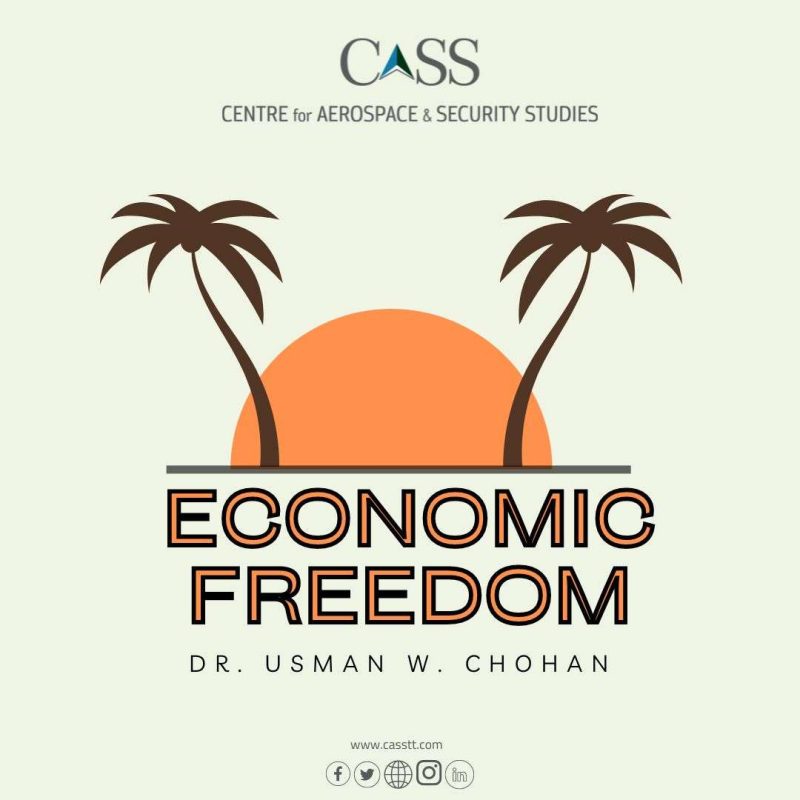The libertarian schools of economic thought have long placed emphasis on the concept of economic freedom, and the central premise of their thinking is that the greatest prosperity will ensue only when individuals are allowed to build wealth without coercion, limitation, theft, or hindrance. Such thinking has long garnered a warm reception, particularly among the brokers of capital (such as Wall Street financiers), but it has also been abused. Free marketeers have often invented ideological straw men and used the notion of freedom to conduct thefts of their own, and the litany of financial crises caused by powerful libertarians such as Alan Greenspan would be enough to dissuade anyone from the high-minded rhetoric that economic freedom might offer.
However, there is something to be said for basic economic freedoms and prosperity. One way to visualize the impact is in mapping economic freedom around the world, and then thinking about one’s assumptions of prosperity. One can then look at our national economic freedom, ask people from various walks of life about their sense of economic freedom, and correlate that with the immense waste of potential that we are witnessing year after year. The Heritage Foundation, an influential right-wing think tank, produces an Index of Economic Freedom, an international ranking of economic freedom that encompasses 12 factors. These include: Rule of Law (property rights, government integrity, judicial effectiveness), Government Size (government spending, tax burden, fiscal health), Regulatory Efficiency (business freedom, labor freedom, monetary freedom), and Open Markets (trade freedom, investment freedom, financial freedom).
The Heritage Foundation argues that the index strongly correlates with “healthier societies, cleaner environments, greater per capita wealth, human development, democracy, and poverty elimination.” It would make intuitive sense that countries with the rule of law, efficiently regulated, open markets, and reasonable government size would do well in terms of the factors that the Heritage Foundation highlights. Causation does not mean correlation, but in this case, we do have the power to adjust how our markets, our governments, our society, and our people function; and therefore, to make these factors ready for the wider prosperity to emanate. The countries that are strongest on the index include, in order: Singapore, Switzerland, Ireland, Taiwan, New Zealand, Estonia, Luxembourg, Netherlands, Denmark, and Sweden. One can think about how these societies do in terms of economic freedom metrics, and then see as well as the correlating variables mentioned by the index.
We can also look at our domestic conditions and intuit what our ranking would be. According to the index, it is extremely low, and out of a score of 100 we receive 49.4, below other South Asian countries. If we look at each variable in the index, we can see why it happens, and we may often have instances in our mind to corroborate how each of the metrics are stifled. On the rule of law, the past year has given plenty of instances of how blatantly the rule of law can be disregarded. But this is also true of prior years, since Pakistan’s ranking has been consistently low in rule of law according to the World Justice Project, at roughly 129/140.
On government size, considerable work on sludge has demonstrated that all processes are cumbersome and can be made much easier, but they are not. Removing sludge would make the state create greater public value, rather than extract value from the public. We must also note that the fiscal health of the country is right now hanging by a razor’s edge, while the tax burden is extremely distortionary and has spurred the Save the Salaried Class movement. On regulatory efficiency, the problems are widespread in business freedom, labor freedom, and monetary freedom. Finally, in the open markets category, one sees many hindrances to trade freedom, investment freedom, and financial freedom. As such, A litany of inefficient procedures, rigmarole, corrupt practices, and other antiquated processes make things too difficult for the efficient exercise of economic freedom.
Yet our economy stands where it does today because these are precisely the factors that need to be addressed, and to be done systematically and quickly. The rule of law is the number one priority, followed by reconciling government’s size, particularly at the provincial level, to the degree of public value being created. Regulatory efficiency also requires a public value mindset and an understanding that all stakeholders must work together rather than against one another. Additionally, distortions deliberately placed within the market must be removed so that a level playing field can exist and people are encouraged to engage in enterprise and to deliver their own prosperity.
Therefore, even if the concept of “economic freedom” has been (and still is) misused elsewhere, there is still much that warrants attention in terms of granting the people economic freedom. This in fact offers a strong policy rubric that has not been followed in the past, where we have instead used “ease of doing business,” which is also useful and shares many parallels with economic freedom. But economic freedom strikes at something different: it touches upon “freedom” as a value, while “doing business” does not. The former is conceptual, while the latter is merely functional. For this reason, using an “economic freedom” policy outlook is perhaps much deeper in its resonance and more laudable in its scope and vision. Let us therefore aim to grant our people economic freedom.
Dr. Usman W. Chohan is Advisor (Economic Affairs and National Development) at the Centre for Aerospace & Security Studies, Islamabad, Pakistan. He can be reached at cass.thinkers@casstt.com.




